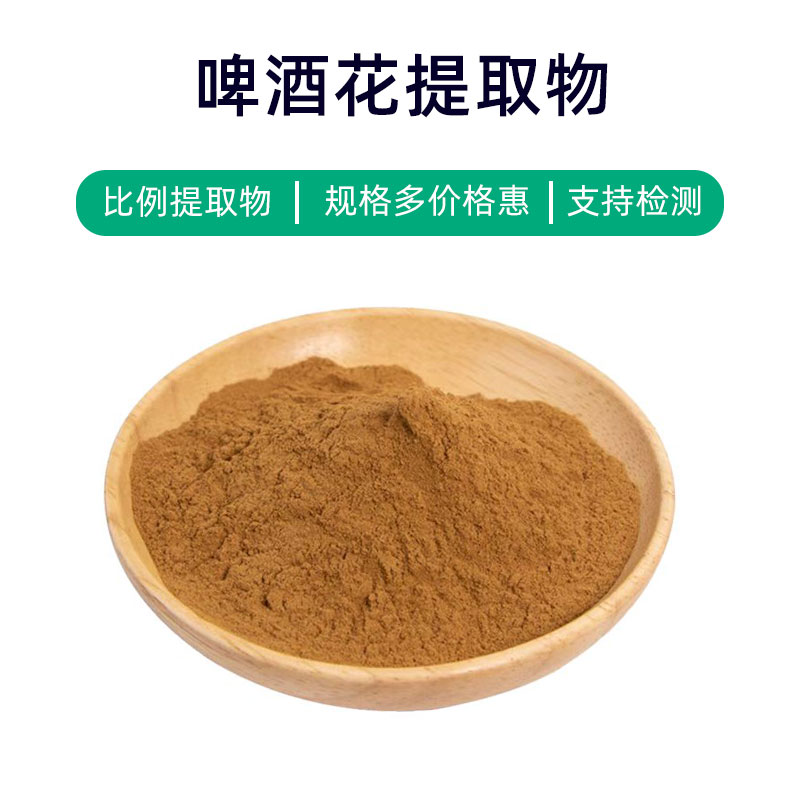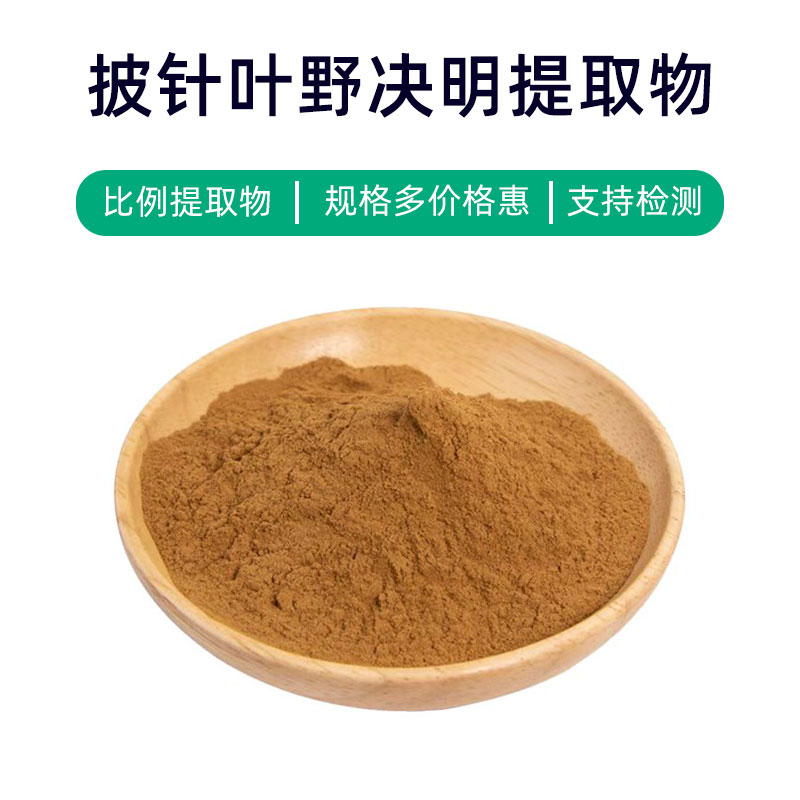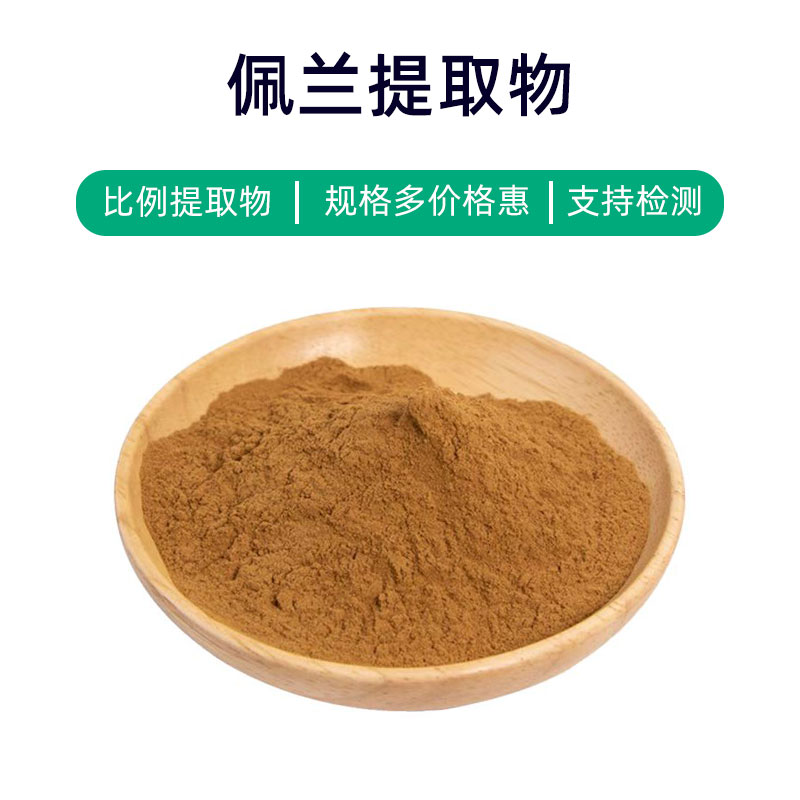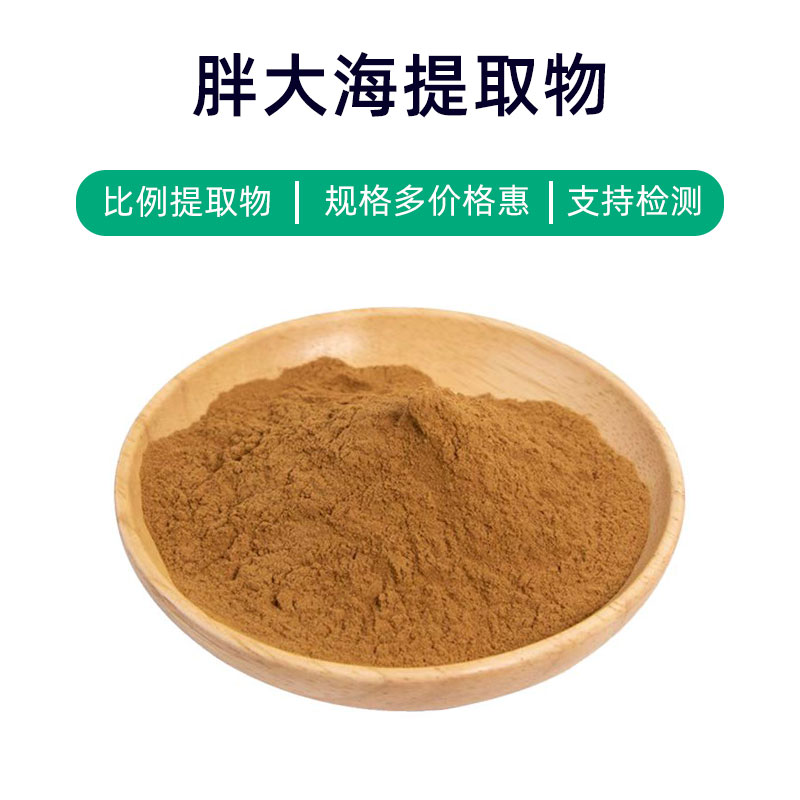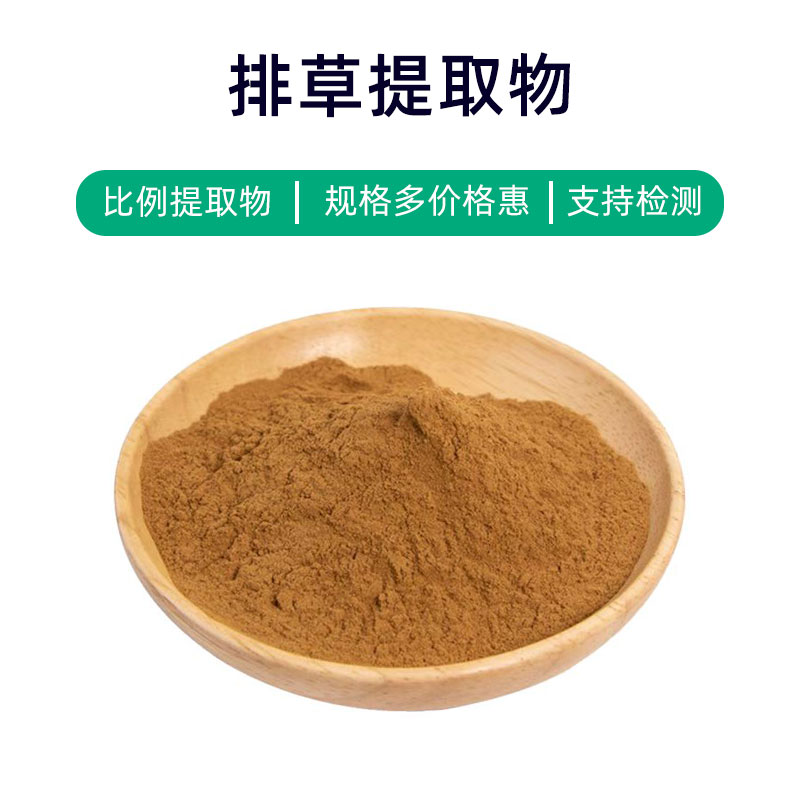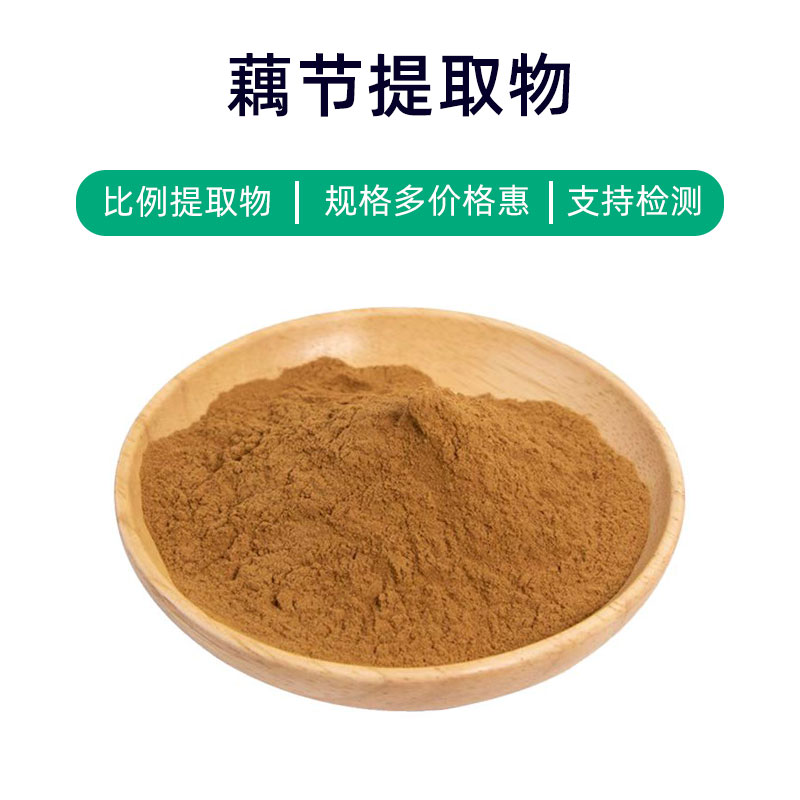Moringa Seed Extract Product Introduction
Moringa seed extract is a natural plant extract derived from the seeds of the Moringa (Moringa oleifera), rich in phytosterols, plant proteins, polyphenols, vitamins, and minerals. These components give Moringa seed extract various benefits and wide applications.
First, Moringa seed extract has exceptional antioxidant properties that can neutralize free radicals, slow down cellular oxidative damage, and help maintain cell health, preventing aging. Secondly, it exhibits anti-inflammatory and antibacterial characteristics, aiding in reducing inflammation and inhibiting the growth of bacteria and fungi, making it beneficial for treating and preventing skin inflammation. Additionally, Moringa seed extract has moisturizing properties that can enhance skin hydration, improve dry skin, making it soft and smooth.
In terms of applications, Moringa seed extract is commonly used in skincare products, health supplements, and pharmaceuticals. In skincare, it can be used as a natural antioxidant and moisturizer, included in creams, lotions, serums, etc., helping to improve skin texture and brighten skin tone. In health supplements, Moringa seed extract is often made into oral capsules or powders for nutritional supplementation and immune enhancement. In pharmaceuticals, it may be used in formulations for treating skin inflammation and anti-aging.
Overall, Moringa seed extract, with its rich nutritional components and diverse benefits, has broad application prospects in skincare, health, and pharmaceuticals.
Moringa Seed Extract Production Process
The production process of Moringa seed extract typically involves the following steps:
- Raw Material Collection and Preparation: First, fresh Moringa seeds are collected as raw material. The collected seeds need to be cleaned and dried to remove impurities and surface dirt, preparing for extraction.
- Crushing and Grinding: The cleaned and dried Moringa seeds are then placed in a crusher or grinder to separate the seed coat from the kernel and grind the kernel into fine powder, enhancing extraction efficiency.
- Extraction Process: The ground Moringa seed powder is placed in extraction equipment, commonly using methods like water extraction, ethanol extraction, or supercritical CO2 extraction. These methods effectively extract active components from the Moringa seeds, such as phytosterols and polyphenols.
- Filtration and Concentration: The extract is filtered to remove solid residues and impurities, followed by concentration, usually employing vacuum evaporation or spray drying techniques to remove solvents from the extract, resulting in concentrated Moringa seed extract.
- Purification and Separation: The concentrated extract undergoes purification and separation to eliminate remaining impurities and solvents, enhancing the product's purity and stability. This may involve various separation technologies like gel filtration and column chromatography.
- Drying and Packaging: The purified and separated Moringa seed extract needs to be dried to reduce moisture content, enhancing stability and shelf life. Finally, the dried extract is packaged, commonly in aluminum foil bags, plastic barrels, etc.
- Quality Control: Throughout the production process, strict quality control is necessary, monitoring the content of active components, microbial limits, heavy metal residues, etc., to ensure the product meets relevant quality standards and regulations.
The above outlines the general production process of Moringa seed extract, with specific methods varying by manufacturer, equipment, and technological processes.
Moringa Seed Extract Effects and Side Effects
Moringa seed extract is a natural plant extract derived from the seeds of the Moringa tree, with various potential health benefits and medical applications. The primary effects and benefits of this product include:
- Antioxidant Action: Moringa seed extract is rich in polyphenolic compounds, such as flavonoids and tannins, possessing significant antioxidant properties that help eliminate free radicals in the body, reducing oxidative stress on cells and protecting cell health.
- Anti-inflammatory Action: Research indicates that the active components of Moringa seed extract can inhibit inflammation responses, alleviating inflammation symptoms, and providing relief for inflammatory diseases such as arthritis and inflammatory bowel disease.
- Immune Regulation: The bioactive components in Moringa seed extract can modulate immune system functions, enhancing the body's immunity, assisting in resisting infections and diseases, and improving overall resilience.
- Blood Sugar Reduction: Studies have found that certain components in Moringa seed extract have blood sugar-lowering effects, helping to regulate blood sugar levels, which is beneficial for preventing and managing diabetes.
- Blood Lipid Reduction: Some studies show that Moringa seed extract can lower cholesterol and triglyceride levels in the blood, aiding in the prevention of cardiovascular diseases such as hypertension and hyperlipidemia.
- Antibacterial and Antifungal Action: Moringa seed extract exhibits inhibitory effects against various bacteria and fungi, useful for preventing and treating skin infections, respiratory infections, and other diseases.
- Liver Protection: The active components in Moringa seed extract can protect liver cells and reduce liver damage, helping to maintain liver health functions.
- Antitumor Activity: Preliminary research suggests that certain components in Moringa seed extract may have antitumor effects, potentially assisting in the prevention and treatment of certain types of tumors, although further research is required for confirmation.
As a natural plant extract, Moringa seed extract is typically considered safe, but attention should be paid to individual differences and potential allergic reactions during use. It is recommended to consult a physician or professional before use to avoid potential adverse reactions.
Moringa Seed Extract Usage and Dosage
Moringa seed extract has broad applications in pharmaceuticals, food, and cosmetics; the following are its main application scenarios and dosage recommendations:
- Pharmaceutical Applications:
- Anti-inflammatory Treatments: Moringa seed extract can be used to formulate anti-inflammatory medications for treating rheumatoid arthritis, inflammatory bowel disease, and other inflammatory conditions. The typical dosage is around 1000-1500 mg per day, divided into 2-3 doses.
- Blood Sugar Treatments: Moringa seed extract can serve as an adjunct treatment for diabetes, with a usual dosage of about 500-1000 mg per day, divided into 2-3 doses.
- Immune Regulation: It can be used to boost immunity and prevent infections. The typical dosage is around 500-1000 mg per day, divided into 2 doses.
- Food Applications:
- Nutritional Supplements: Moringa seed extract can be made into nutritional supplements with antioxidant and anti-aging properties. The usual dosage is 500-1000 mg daily, according to product instructions.
- Food Additive: It can be added to beverages, juices, salads, etc., to enhance nutritional value. The dosage generally depends on the type of food and preparation requirements.
- Cosmetic Applications:
- Skincare Products: Moringa seed extract, rich in vitamin E and antioxidants, can be used in skincare products, providing moisturizing, nourishing, and anti-aging effects. The dosage generally follows the product instructions.
- Shampoo and Hair Care Products: Adding an appropriate amount of Moringa seed extract can increase the nutritional value of hair products and improve hair quality. The dosage typically depends on the product type and personal needs.
The usage and dosage of Moringa seed extract should be tailored according to specific product instructions and medical advice to avoid adverse reactions from overuse. During use, pay attention to product quality and source, choosing reputable channels for purchase to ensure safety and effectiveness.
Moringa Seed Extract Source Plant: Introduction, Distribution, and Growth Environment
Moringa (Scientific Name: Moringa oleifera) is a common perennial herb, often referred to as the "miracle tree" or "drumstick tree." Here is detailed information about the source plant of Moringa seed extract, including its introduction, distribution, and growth environment:
- Plant Introduction:
Moringa belongs to the Moringaceae family and is an evergreen tree or shrub that can grow up to 10 to 12 meters tall. It possesses significant medicinal and nutritional value, with nearly all parts of the plant used in medical or food preparations. Its leaves, roots, seeds, and flowers all contain various nutrients and bioactive compounds. - Distribution:
Moringa originates from South Asia but is now widely distributed in tropical and subtropical regions, including Asia, Africa, and the Americas. It has a strong ability to adapt to drought and poor soil, resulting in its cultivation in many countries. - Growth Environment:
Moringa prefers warm, moist climates but can also adapt to dry and hot environments. It has non-demanding soil requirements and thrives well in poor, sandy, or clayey soils. It typically grows best in lowland areas at altitudes below 500 meters. - Geographic Distribution:
- Asia: Moringa is native to northern India and is now widely cultivated in India, Sri Lanka, Nepal, Bangladesh, and other regions.
- Africa: Moringa is cultivated in several countries across the African continent, including Nigeria, Ethiopia, Kenya, and Madagascar.
- Americas: Moringa has also been introduced and cultivated in the Americas, including Mexico, Brazil, and the Dominican Republic.
- Growth Characteristics:
Moringa has a fast growth rate, with a rounded canopy, feathery leaves, and small white flowers. Its bark is gray, with a sturdy trunk and dense foliage, exhibiting strong drought resistance and shade tolerance, allowing it to adapt to various environmental conditions.
Moringa seed extract is gaining attention for its rich nutrients and medicinal value, being widely used in pharmaceuticals, health supplements, food, and cosmetics.
Moringa Seed Extract Processing and Storage
The processing of Moringa seed extract typically includes the following steps: first, washing and peeling; then, drying or baking the Moringa seeds; followed by grinding and extracting. Finally, the extract undergoes filtering, concentration, and drying processes. Throughout the processing, it's crucial to strictly control temperature, humidity, and time to ensure product quality and stability.
For storage, Moringa seed extract should be kept in a dry, cool, and well-ventilated environment, avoiding direct sunlight and high temperatures. It should be stored in sealed containers, minimizing exposure to air and moisture to prevent oxidation and mold growth. Regularly check storage conditions to ensure product quality and stability, avoiding prolonged exposure to air.
Monica Sun is a seasoned expert in the plant extraction industry with over a decade of experience in research and production. She specializes in the extraction and purification of plant active ingredients, focusing on driving innovation in natural product applications. Monica has participated in the development of multiple functional plant extracts, delivering high-value natural raw material solutions for the health food, pharmaceutical, and dietary supplement sectors.









